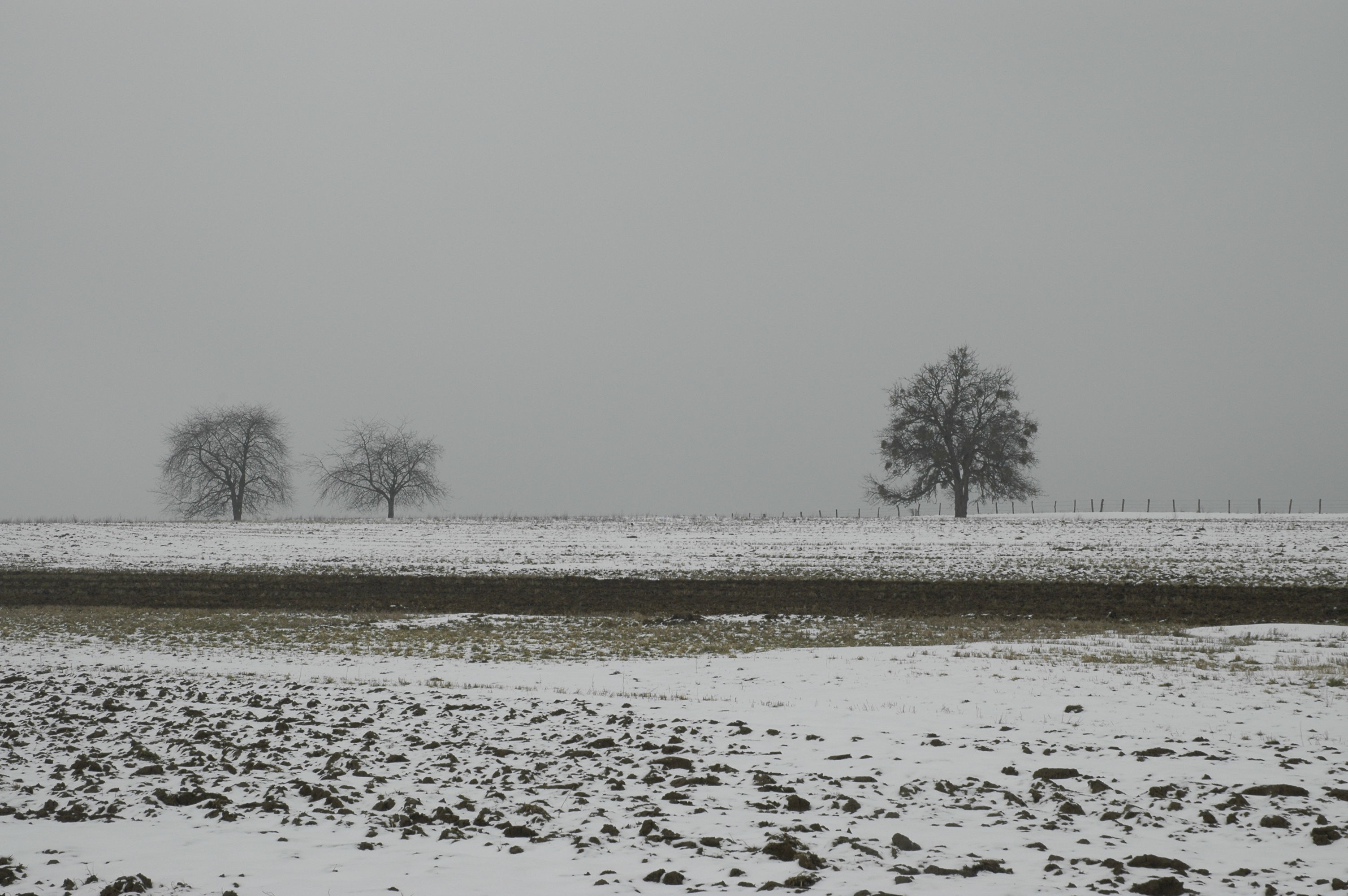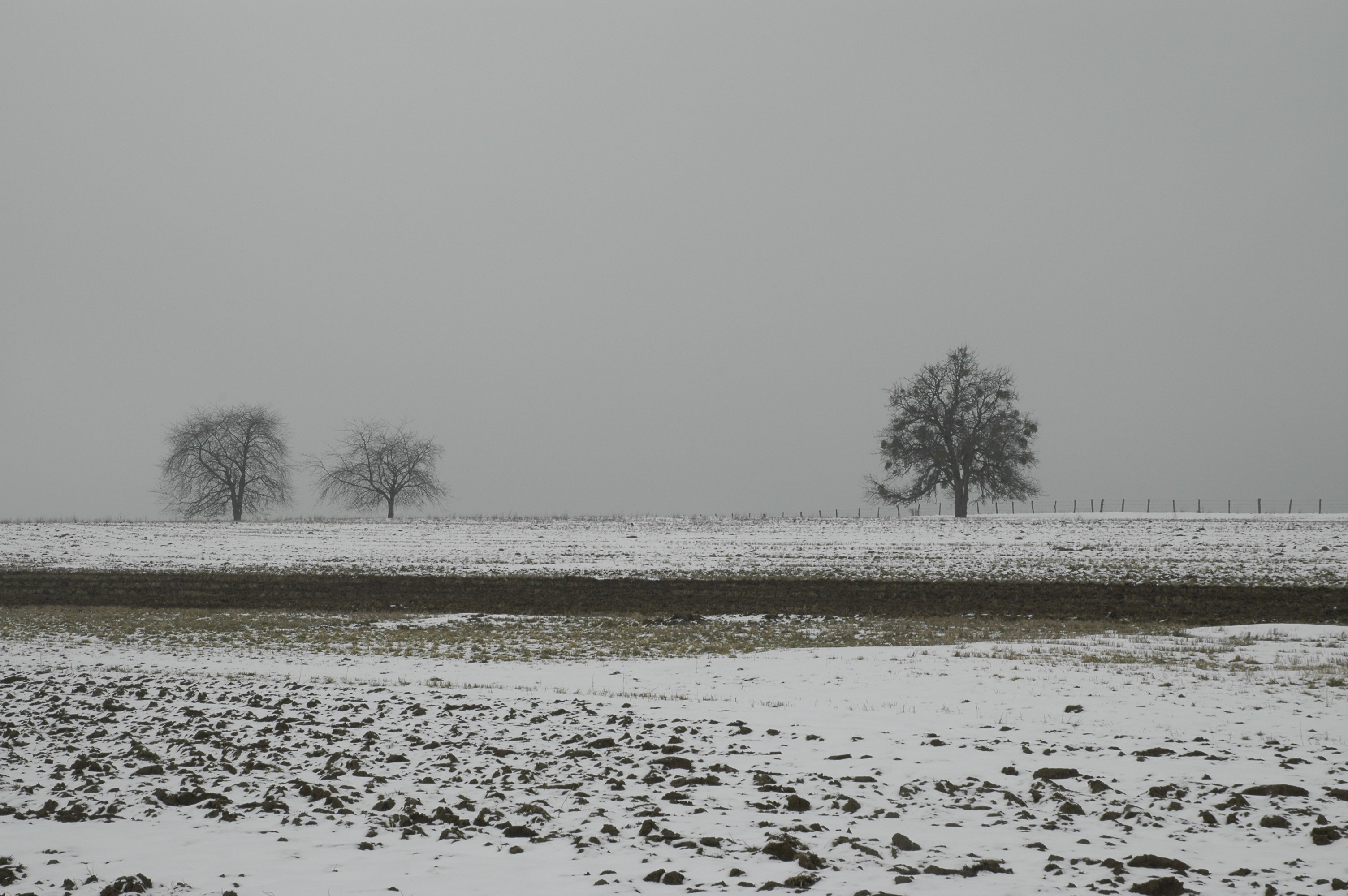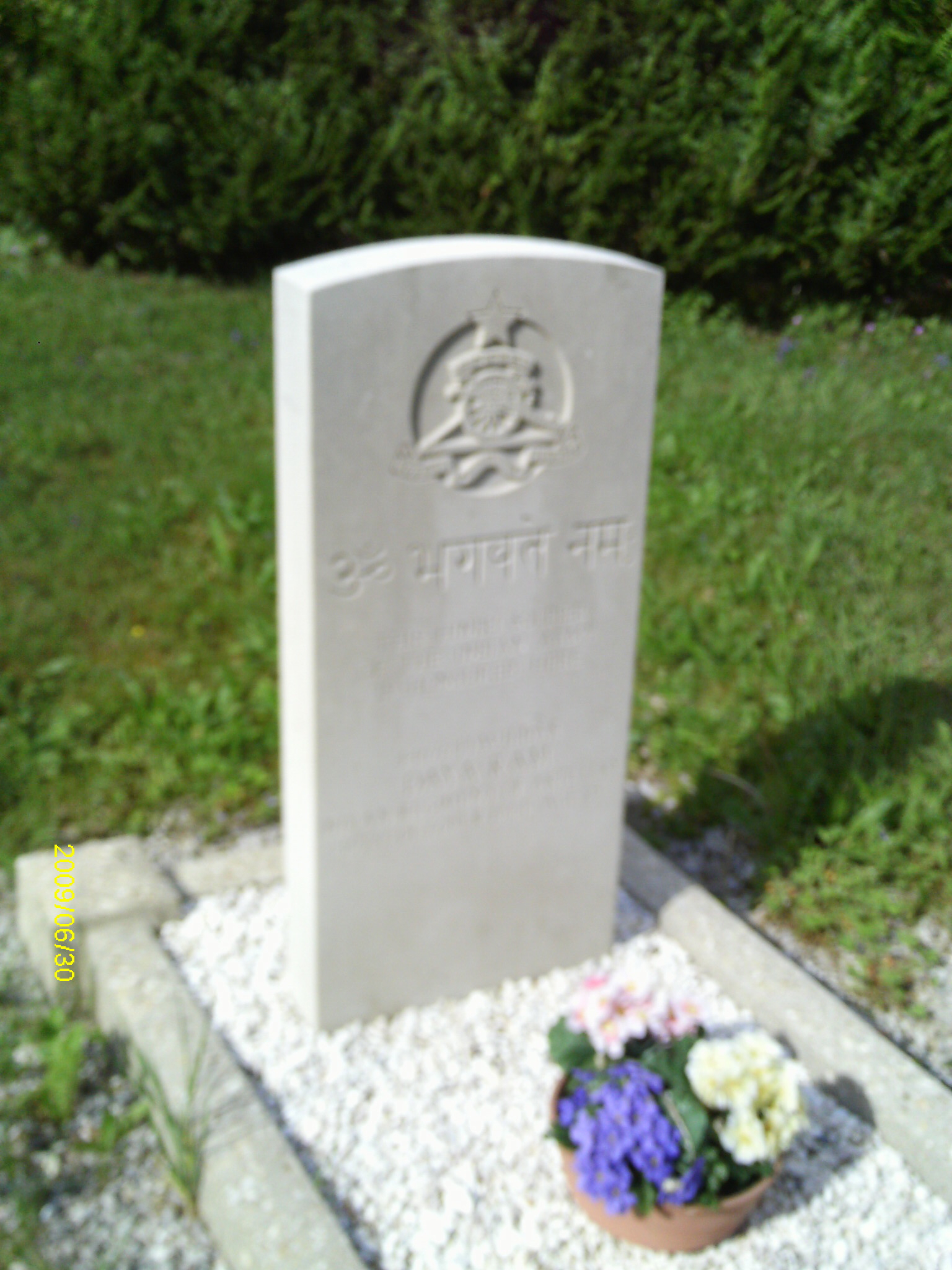The events of September 27, 1944 are best told in the words of Jules Perret.
Wednesday, September 27, 1944
"At eight o’clock, the crier called all the men from 16 to 60 years old to the school. Should I go? I wanted to talk it over with Jacques, but he was tending the animals. So I went over to the school with Old Man Besson. I said to him, “Why are you going? You’re not from here.” So he went home. In the classroom, I sat down between the gendarme Savant Ross and my brother-in-law. And there were Jacques and René, sitting a little farther away. Then there were the Germans. With them was someone dressed as an aviator, bareheaded, in sabots. He was pale and muddy. Standing in front of us with a demonic smile, he pointed with his stick at some of the guerillas. “Who is this character?” asked my brother-in-law. “Gunther Ulrich, one of our escaped prisoners,” Ross answered. The men from the lower village, who got word a little later, started showing up.
"We look at each other. We talk. We say, “They’re going to take us to dig anti-tank trenches at Héricourt.” With my bad knee, I’m not at all interested in going. I want to talk to Jacques, but he is staring at the curtain in front of the stage, where you can read the words, “Peace, Fraternity.” I get up, pace back and forth, then slip through a door that a guard had just walked away from, go down into the basement of the girls’ school, go through the laundry and come out behind the boys’ school, just a few steps from my house. But I still have to cross the road in front of four Cossack guards. I go right up to them and say, “Comrade Cossack Kouban?” “Ja, ja, Kouban. You know Kouban?” “Yes, know Kouban.” “You Kouban?” Enchanted, they speak some Russian and let me pass.
"Suzette is in the kitchen. I tell her they’re sending all the men to Héricourt, and that I pulled myself out. “You did the right thing. But they’re searching all the houses. Take your scythe and go hide in Tisserand’s hut by the pond.” It’s good advice. More Cossacks, in the orchard. I shake a plum tree. Gut! And I go on. Behind grandmother’s house, Suzette meets me with a cape. A little farther on, more Cossacks, Jacques’. Guten morgen, Cossacks! I point to the rain: “Nix gut! Krieg nix gut. Kreig fertig. Kouban!” It’s all the German I know. We hear some shelling far away. A Cossack says, “Boom! Boom! Pap kaput!” I go back and sit down on my cape, behind a bush, not far from the lieutenant’s grave.
"And here’s what I thought: “Where is M. Boigeol’s officer’s jacket that Jacques asked for the other day? He hasn’t returned it. What if they find it?” I wanted to go back home or back to the school. I had only taken a few steps, when here comes my sister. She tells me they’re taking the men to Héricourt, and they have to have food and clothing for several days, and congratulates me for escaping this chore. I told her about Boigeol’s jacket. I find out it’s under a pile of hay near our outhouse. I put it in a safer place. And I go back to the field where Suzette will come looking for me around noon."
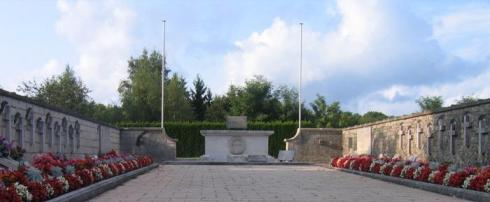 The burial place of the Etobon martyrs
The burial place of the Etobon martyrs 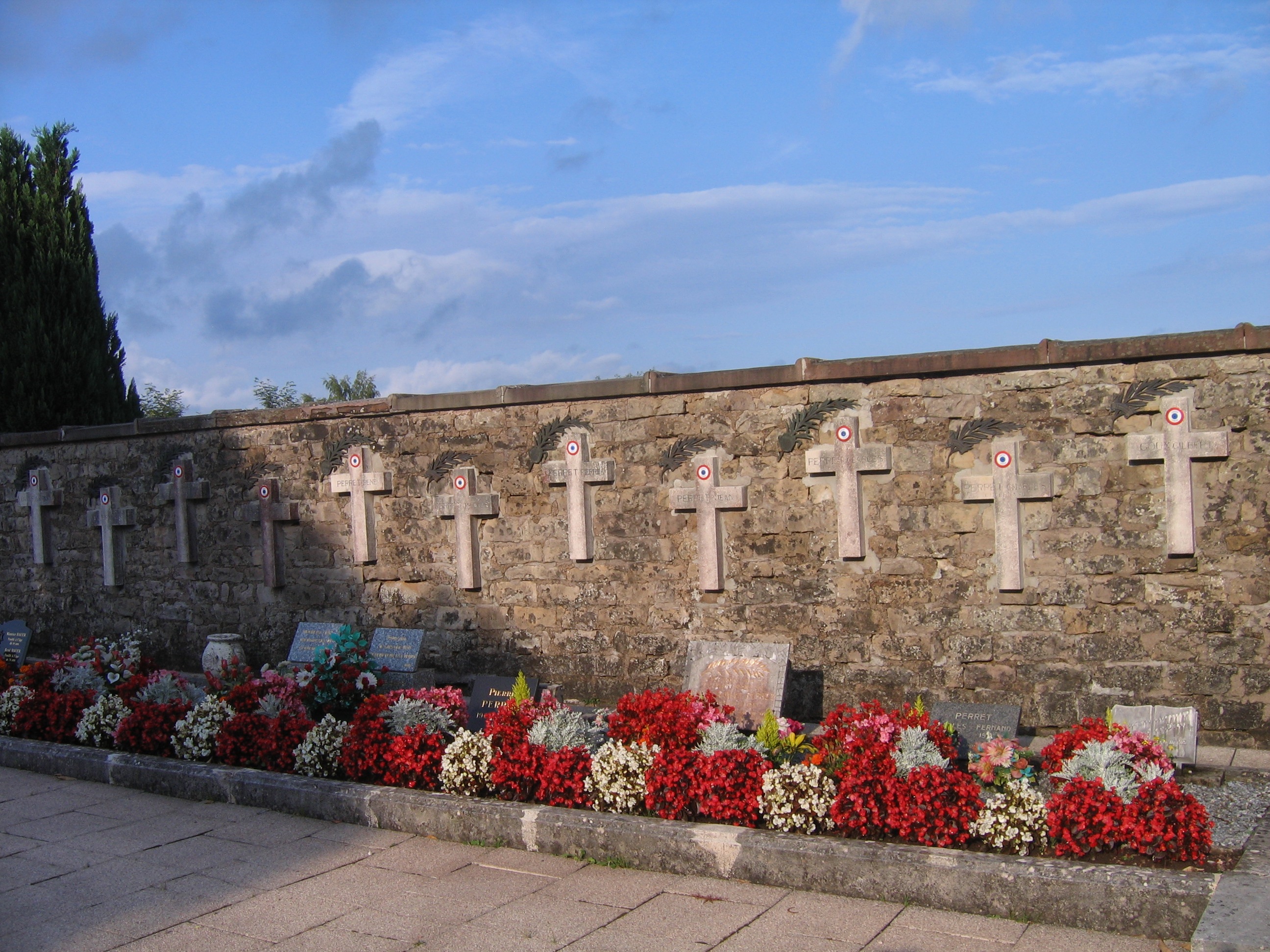
 Katherine Douglass
Katherine Douglass